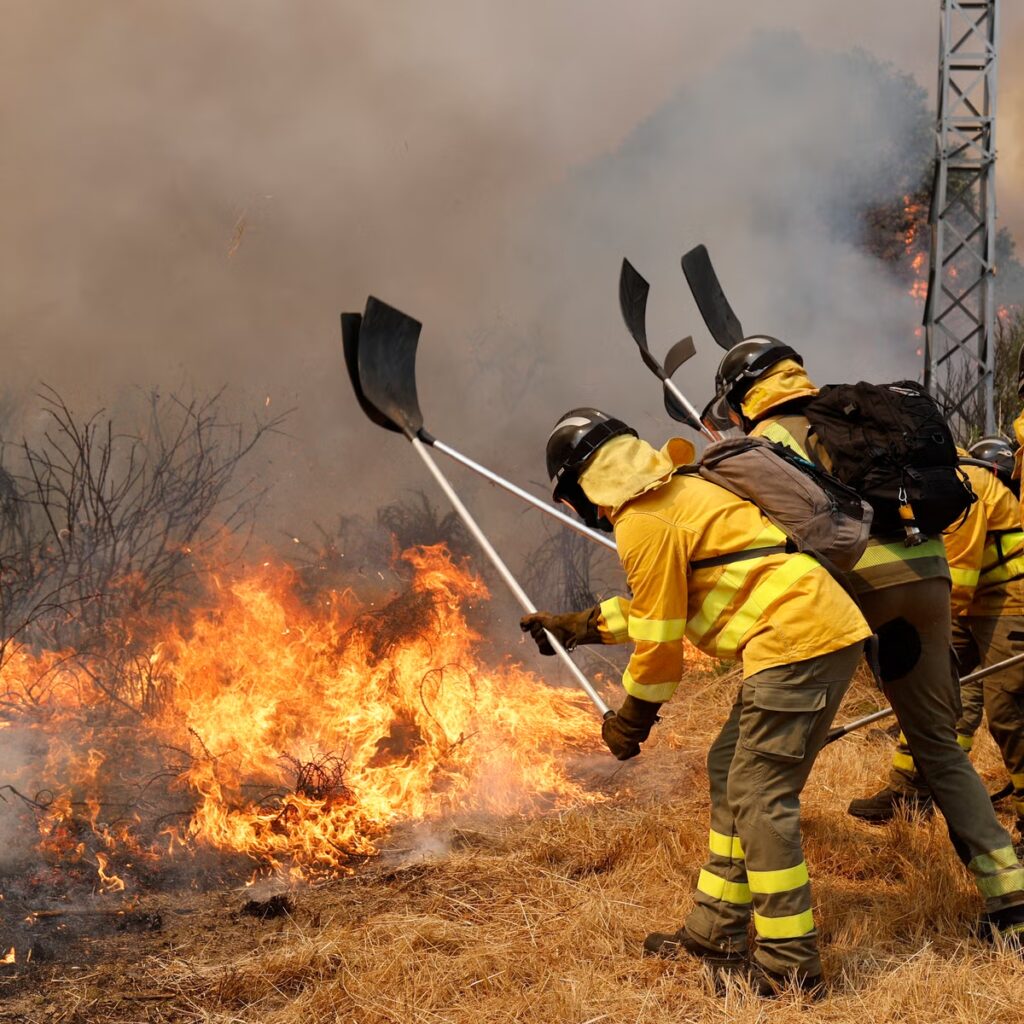Climate change fuels escalating wildfire risks in Spain and Portugal this summer, as record heat, prolonged dryness, and strong winds created extreme fire conditions. Scientists confirm that human-driven global warming made these fire-prone conditions up to 40 times more likely, intensifying the severity of wildfires across the Iberian Peninsula.
A Summer of Flames
Spain and Portugal endured relentless heat waves, with daytime temperatures far exceeding seasonal averages. Combined with gusty winds and near-zero rainfall, rural landscapes became tinderboxes. Wildfires spread rapidly, destroying homes, scorching farmland, and threatening biodiversity. By August’s end, hundreds of thousands of hectares had burned, prompting emergency declarations and mass evacuations.
Scientific Findings Confirm Climate Link
The attribution study highlights the significant role of climate change in escalating wildfire risks. Human-induced warming increased the frequency and duration of extreme heat and fire-prone conditions. Climate change fuels escalating wildfire risks in Spain and Portugal by creating longer fire seasons, with Mediterranean regions warming 20% faster than the global average.
Lead researchers note that extreme fire weather would have been far less likely without human influence, emphasizing that global warming’s impacts are evident in every major fire season in southern Europe.
Human and Environmental Costs
Thousands of residents were displaced, and dozens of firefighters and civilians suffered injuries. Farmers lost critical crops, particularly olives and grapes, while transport networks were disrupted. Environmentally, wildfires degrade soils, destroy habitats, release vast amounts of CO₂, and threaten biodiversity. Climate change fuels escalating wildfire risks in Spain and Portugal and amplifies the destructive feedback loop that accelerates warming across the region.
Calls for Urgent Action
Authorities in Madrid and Lisbon face pressure to strengthen wildfire preparedness. Measures include expanding early warning systems, improving forest management, investing in firefighting resources, and establishing buffer zones around communities. Scientists warn that adaptation alone is insufficient; reducing greenhouse gas emissions is crucial to prevent longer, hotter, and more destructive fire seasons. For practical safety measures, see the wildfire preparedness guide.
Looking Ahead
As the summer flames recede, the Iberian Peninsula reflects the growing threat of climate change on wildfire behavior. Experts stress that without immediate global action, climate change fuels escalating wildfire risks in Spain and Portugal will worsen, endangering lives, ecosystems, and economies.

